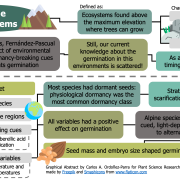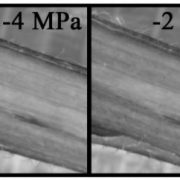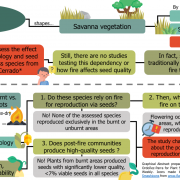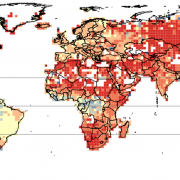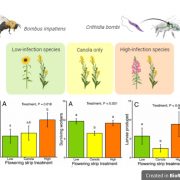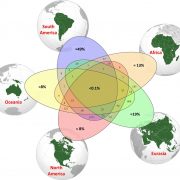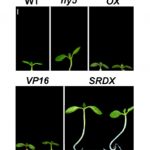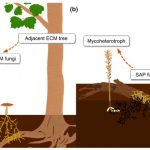Community diversity outweighs effect of warming on plant colonization ($) (Global Change Biol.)
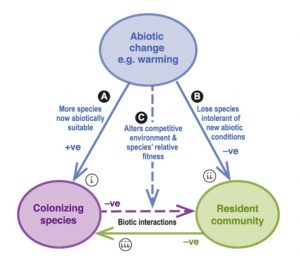 Several studies have addressed growing concerns regarding increases in exotic plant colonization of communities in response to a warming climate. However, both abiotic (e.g., warming climate) and biotic (e.g., changes in community diversity) shifts can be simultaneous results of warming and both can influence colonization of a community. The question that a recent experiment by Catford et al. aimed to address was whether one type of shift was more important than the other for colonizer success. Grassland plots were seeded and then warmed with infrared heaters. Some plots were maintained at the original species richness, or number of diverse species, while others were not. After 20 years, biomass samples were collected and colonizing species (non-seeded) were quantified. Separating abiotic and biotic influences in this way showed that high diversity communities and communities with particular functional (physical) traits could resist colonization by certain types of species despite warming of up to 3°C, suggesting that biotic shifts in response to warming may be more important than abiotic shifts for invaders. (Summary by Sienna Wessel) Global Change Biology 10.1111/gcb.15017
Several studies have addressed growing concerns regarding increases in exotic plant colonization of communities in response to a warming climate. However, both abiotic (e.g., warming climate) and biotic (e.g., changes in community diversity) shifts can be simultaneous results of warming and both can influence colonization of a community. The question that a recent experiment by Catford et al. aimed to address was whether one type of shift was more important than the other for colonizer success. Grassland plots were seeded and then warmed with infrared heaters. Some plots were maintained at the original species richness, or number of diverse species, while others were not. After 20 years, biomass samples were collected and colonizing species (non-seeded) were quantified. Separating abiotic and biotic influences in this way showed that high diversity communities and communities with particular functional (physical) traits could resist colonization by certain types of species despite warming of up to 3°C, suggesting that biotic shifts in response to warming may be more important than abiotic shifts for invaders. (Summary by Sienna Wessel) Global Change Biology 10.1111/gcb.15017
[altmetric doi=”10.1111/gcb.15017″ details=”right” float=”right”]


